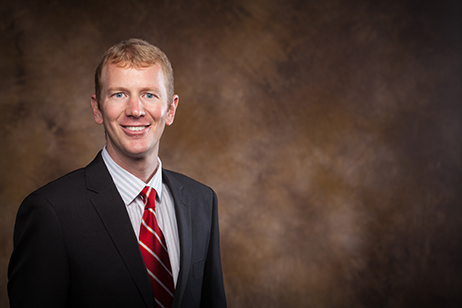FAYETTEVILLE, Ark. – The University of Arkansas is the lead institution for a new $786,407 grant from the U.S. Department of Energy to investigate strategies to minimize volumetric swelling in metallic nuclear fuels. The research has the potential to increase the safety and efficiency of nuclear reactors for power generation.
“Almost all current nuclear energy reactors operate with ceramic fuels,” said Paul Millett, assistant professor of mechanical engineering. “But as an alternative, metallic fuels have generated significant interest because they have much higher thermal conductivity, meaning the temperatures in the reactor are far lower than with ceramic fuels.”
Fuels in metallic form, however, have a tendency to swell significantly during operation, which limits the efficiency of power generation. The swelling is a caused by gas elements such as helium and xenon that are produced by the atomic fission process and cluster to form gas-filled bubbles within the fuel.
As principal investigator, Millett will work with researchers at the Georgia Institute of Technology, Texas A&M University and the Idaho National Laboratory. They will use advanced computer simulations and experiments to get a better understanding of the micro-scale processes that lead to volumetric swelling in metallic fuels. Most importantly, the researchers will explore how to design fuels that are resistant to swelling.
Scientists have addressed volumetric swelling in metallic fuels by incorporating a significant amount of space, called free volume, around the fuel. This provides room for the fuel to swell. But this solution is not a desirable constraint for advanced fuel types in future reactor systems, Millett said. He and his colleagues will investigate a strategy to minimize swelling by incorporating micrometer-scale pores within the fuel that can accommodate fission gases as they are produced.
“Developing this understanding will lead to a new metallic fuel design that will enable better management of both swelling and fission gas release,” Millett said. “This new paradigm will also facilitate the design of accident-tolerant fuels.”
Topics
Contacts
Paul Millett, assistant professor, Department of Mechanical Engineering
College of Engineering
479-575-2473, pmillett@uark.edu
Matt McGowan, science and research communications officer
University Relations
479-575-4246,
dmcgowa@uark.edu
